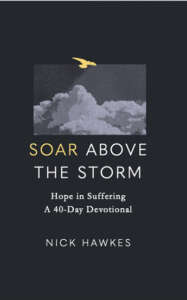The reasons people don’t accept God’s love and lordship are many and varied. It’s worth exploring some of them to see if they have credibility.
The real issue concerning Christianity is this: Is it true? Nothing else really matters. If God really has revealed himself through Jesus Christ, then God is worthy of our full commitment. If God has not; then Christianity is not worthy of anything. So, let me say again: The real issue is: Is it true?
If people are so wedded to their need to live autonomously from God that they refuse to investigate whether Jesus is true, then there is little anyone can do. That is simply wilful atheism, and it is not rational. But for those who dare to seek, their quest is to find an answer to the question: Is it true? From this, it follows that discarding Christianity because of abuses committed by the church in history is irrelevant to the question. Discarding Christianity because the church once treated you poorly, is similarly irrelevant to the central question. Meeting religious people whom you judge to be hypocritical is also irrelevant.
A desire to fit in with society’s atheistic opinion leaders, who tell you that God is not “on trend”, is similarly avoiding the more pertinent question: Is it true?
Whether or not you believe you can live a moral life without being a Christian is also irrelevant to the question.
To be perfectly honest, I am not greatly interested in whether or not you say: ‘Being a Christian is boring and inconvenient to my lifestyle’, the issue remains; is it true? If the love story of the Christian gospel is historically and rationally true, then it is worthy of your full commitment. But if you willfully choose to hide from the truth in a cave of ignorance, justifying your position with lazily held clichés, then that, I submit, is culpable behaviour.
Is it all about my happiness?
It’s fair to say that the concept of truth has taken a bit of a battering in recent decades. Evidently, people are less inclined to seek it these days, preferring instead to pursue those things that make them “happy”. Happiness is now the measure of what is good.
This sort of thinking is similar to the Epicurean philosophy that existed twenty-three hundred years ago. And now here it is again, bobbing up in history. Epicurus lived in the 3rd century BC. He was a rationalist who advocated prudence and aimed at the ideal of developing happy, egalitarian communities, without any thought of God. Death was simply the dissolving of a bag of atoms. Sadly, it didn’t take long for his thinking to degenerate into a philosophy of self-focused happiness. My happiness became the ultimate good. My happiness became the ultimate goal. The ultimate significance was therefore self. And, dare I say it, the ultimate god I serve, became self.
I once listened to the Australian politician, Kevin Andrews, talk about his book on marriage. It was called, rather sadly, Maybe I do. When introducing his book to us, he said that a few decades ago, marriage was considered to be a morally good thing to do, and it was morally good to do all you could to make your marriage last. However, in recent years, this has been overtaken by a new morality. Now the focus is not on doing the right moral thing in marriage. Now the measure of all things is, ‘does it make me happy?’ Something is only morally good if it makes me happy.
It is little wonder that narcissism has become one of the diagnostic features of our age. The term ‘narcissism’ comes from the Greek myth of Narcissus, a young man who fell in love with his own reflection in a pool of water. It is important to note that narcissism is different from self-esteem. Narcissism is having an inflated and untrue image of self. Self-esteem is having a true image of yourself, and knowing your worth.
People with self-esteem value personal achievement and personal relationships. This is in contrast to Narcissists who lack empathy and have poor relationship skills. So, here’s a hint: Don’t marry one.
Professor Jean Twenge and Keith Campbell have been investigating whether people born in recent generations are more narcissistic than previous generations. It turns out that they are, and they have documented their findings in their book The Narcissism Epidemic: Living in the Age of Entitlement.[i] Evidently, plastic surgery rates have increased, and there is a greater drive to be “unique”, to stand out rather than fit in. This is even evident in the names people are choosing for their children. Crucially, they show that relationships are not as stable as they once were. More children are being born to unmarried couples, and people don’t stay married for as long.
Into the midst of this self-worship and self-obsession comes Jesus. He comes as a servant to wash the feet of his disciples and die on a cross for us to pay the price for our sins. The difference between his attitude and that of the world today is monumental.
[i] Jean Twenge and Keith Campbell, The Narcissism Epidemic: Living in the Age of Entitlement, (New York: Atria Books, 2009).
 Dr Nick Hawkes is a scientist, pastor, apologist, writer and broadcaster. He also describes himself as an absent-minded, slightly obsessive man who is pathetically weak due to cancer and chemo, who has experienced, and needs to experience, the grace of God each day.
Dr Nick Hawkes is a scientist, pastor, apologist, writer and broadcaster. He also describes himself as an absent-minded, slightly obsessive man who is pathetically weak due to cancer and chemo, who has experienced, and needs to experience, the grace of God each day.
Nick has written a book Soar above the Storm in which he draws on his experience of cancer to encourage anyone walking through a storm in life to find rest and hope in God. It offers a 40-day retreat to be refreshed and strengthened and find deep peace in God. Order it at Koorong.
He blogs and records podcasts at nickhawkes.net
Nick told his life story to Eternity here: Deadly storms, heroin addicts, cancer and my faith.
Email This Story
Why not send this to a friend?


